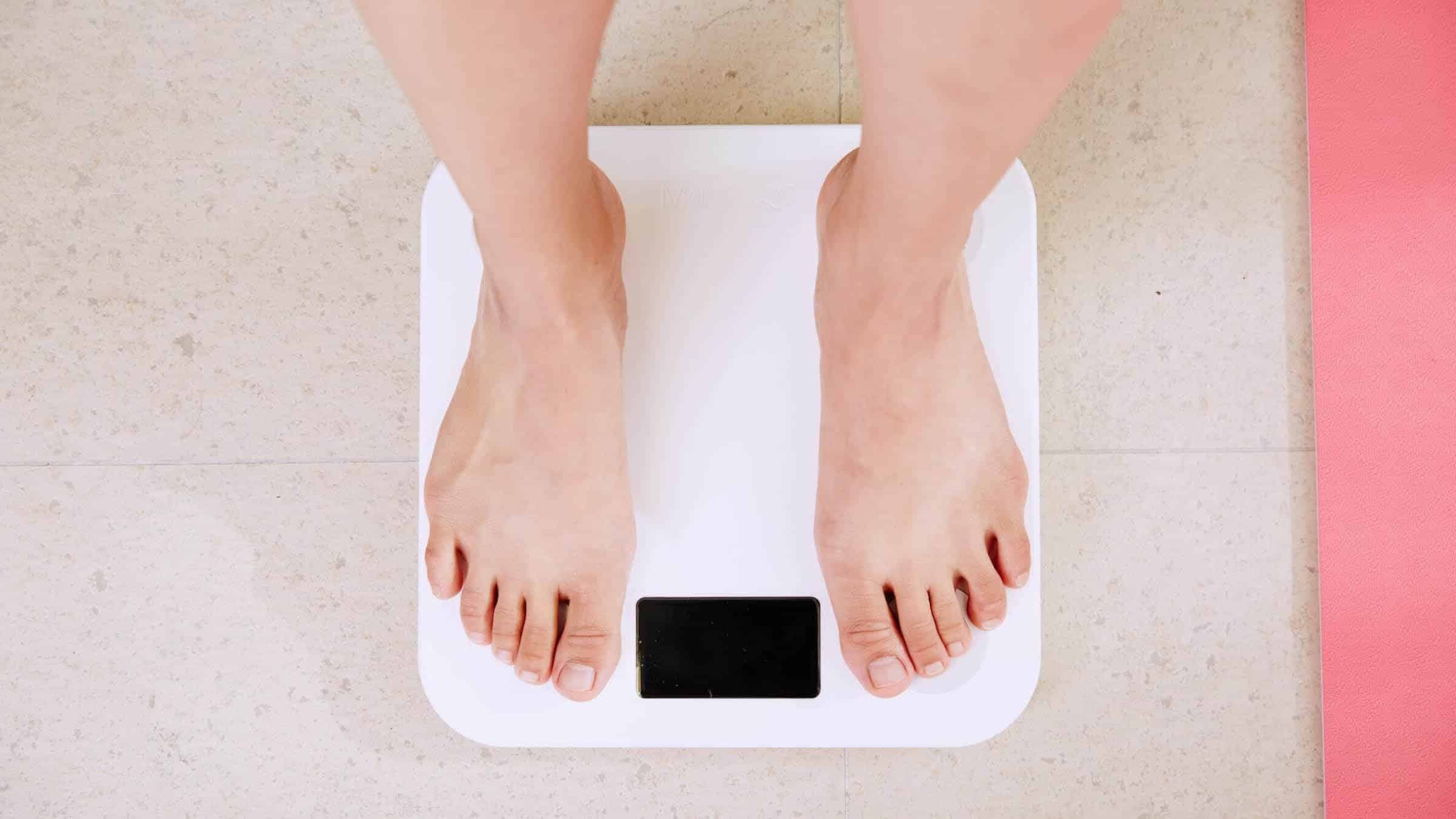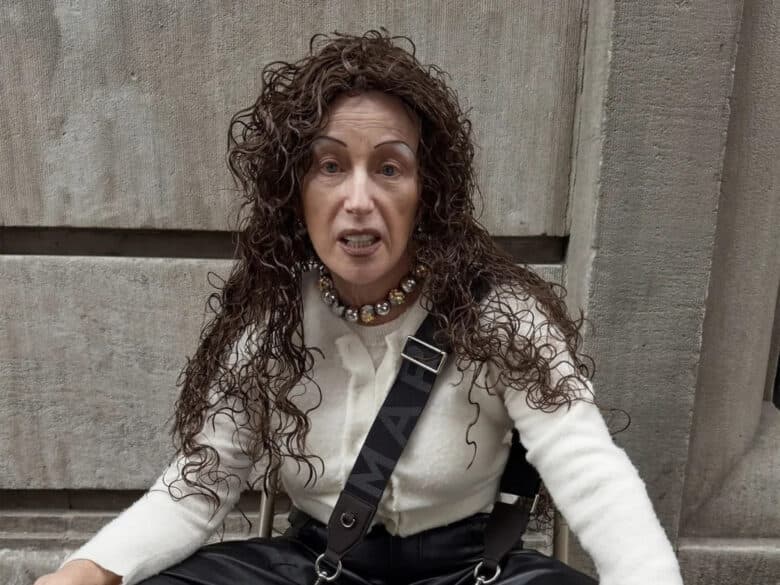TikTok’s “My name is Bella Hadid” trend is fuelling dangerous “body checking” habits in young girls

Sitting on Tiktok and scrolling for hours a day seems like common practice for Gen Z, and when you shut off your phone, you can shut off from that world, right? Well, not exactly. The media we consume can dictate many aspects of our day-to-day lives, including our eating habits.
Case in point: there is a trend making the rounds on Tiktok, which takes a voice note from supermodel Bella Hadid (in a video for i-D called ‘Beyond Bella Hadid’), out of context and uses it to promote and glamorise disordered eating. “So my name… My name is Bella Hadid,” says the 26-year-old model — something that quickly became a soundbite, which was taken out of context. Now, the corresponding hashtag has 124.9k videos underneath it and counting, most of which include users reminiscing on the days when they took part or actively partaking in body-checking habits.
The videos include a range of content; for example, some compare the body they have now to when they were younger. But mainly, it surrounds the idea of eating; this can be from wiping excess oil off a pizza slice, binge-eating or only eating one type of meal for months. Though some of the comments express worry, saying, “please don’t say things like this”, and creators like Victoria Paris condemning the trend, an overwhelming majority of the comments are supportive, saying, “wow amazing!”, “keep it up:)” and “thanks for the tutorial”.
These behaviours fall under the term body checking, which in its practice encompasses a range of unhealthy behaviours. It can be from comparing how clothes fit, your weight or how you look from different angles. Offline this can look like frequent mirror checking and weighing yourself on scales. With many of us already hyper-aware of our bodies due to certain standards that have been built in the online world, it is important to know where the line between noticing your body and falling into dangerous behaviours is, and if that has been crossed.
HUNGER spoke to experts on their opinion of body checking in the social media realms and how this affects an individual’s reality. Dr Omar Tillo, a Plastic Surgeon and Medical Director at Creo Clinic, explained how body checking can become problematic in someone’s life. “For example, when this causes anxieties and isolation, it leads to limitations in social life or work; or when it affects the eating habits and the extremes.”
In addition to this, Dr Tara Francis who is a Cosmetic Dentist and Advanced Facial Aesthetician at Enhance, says “that constant checking could lead to a potential over analysis of one’s self. It’s important to know your body and your features but in a loving and positive way, and embrace all parts of you”.
However, for those at an impressionable age, specifically if “you’re female and going through a certain part of your hormonal cycle, I’d highly recommend not to ‘body check’ and instead focus on things like self-love activities. These could be taking a bath, journaling, getting a massage or facial.”
This concerning trend is not new online and balances on the prediction that the 90s and early 2000s skinny body ideal is back. “90’s heroin chic” has recently grown in the number of TikTok searches and the early toxic Tumblr ‘pro-ana language’ is reportedly returning through a new platform. If you were on Tumblr in the early noughties, you were well aware of the detrimental effects of the content at the time, and how the push to censor the promotion of self-harm and eating disorders only passed in 2013. The platform held the likes of posts detailing daily eating habits, clubs and challenges, pro-eating disorders zines and even newsletters sent out via email.
Although Tumblr did eventually censor its content, it seems as though it has found a new home on TikTok. Mostly used by adolescents, the social media platform has become unregulated to the point where these communities are forming again. Much of the information on Tik Tok now surpasses censorship and can even push itself into the algorithm via hashtags and coded search terms to show up more on a user’s feed.
However, TikTok’s new trend is worrying for younger generations growing up on an unmonitored platform that promotes a certain body type. Most TikTok users are younger than 20 years old, with the platform dropping the age of joining to 13 years old. According to Statista, users are also overwhelmingly female in the demographic.
A lot of the content is only noticed when it hits mainstream feeds. For example, the “My name is Bella Hadid” trend can insert itself into the feed of those interacting with other videos of the model. But deeper into Tiktok are communities that take over a user’s feed, and the lack of control and censorship from the social media platform means that it is promoting body-checking habits to the point where it shows related videos as soon as an individual logs into their profile. It has been seen before on Tumblr, and is manifesting itself again on Tiktok.

